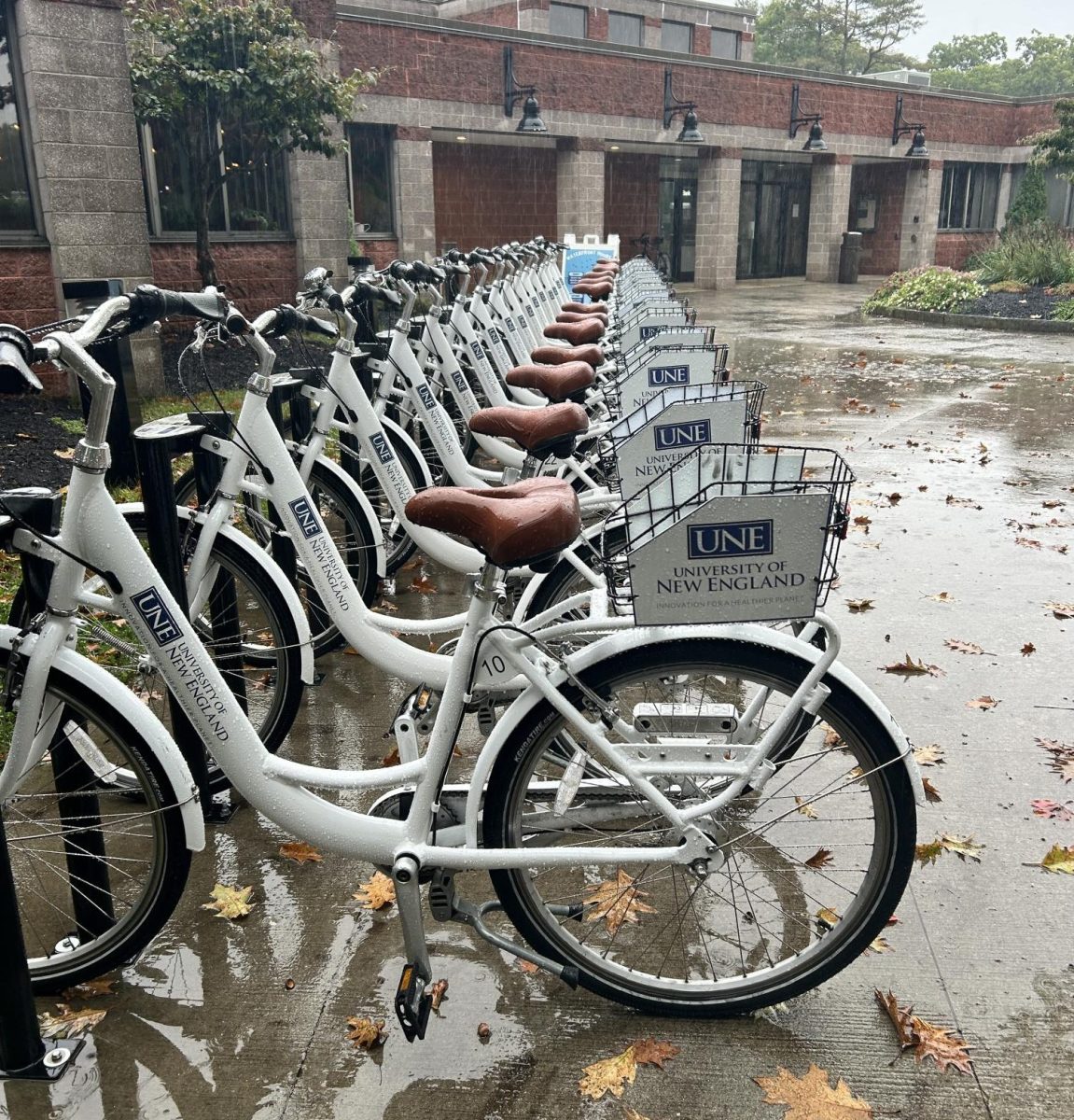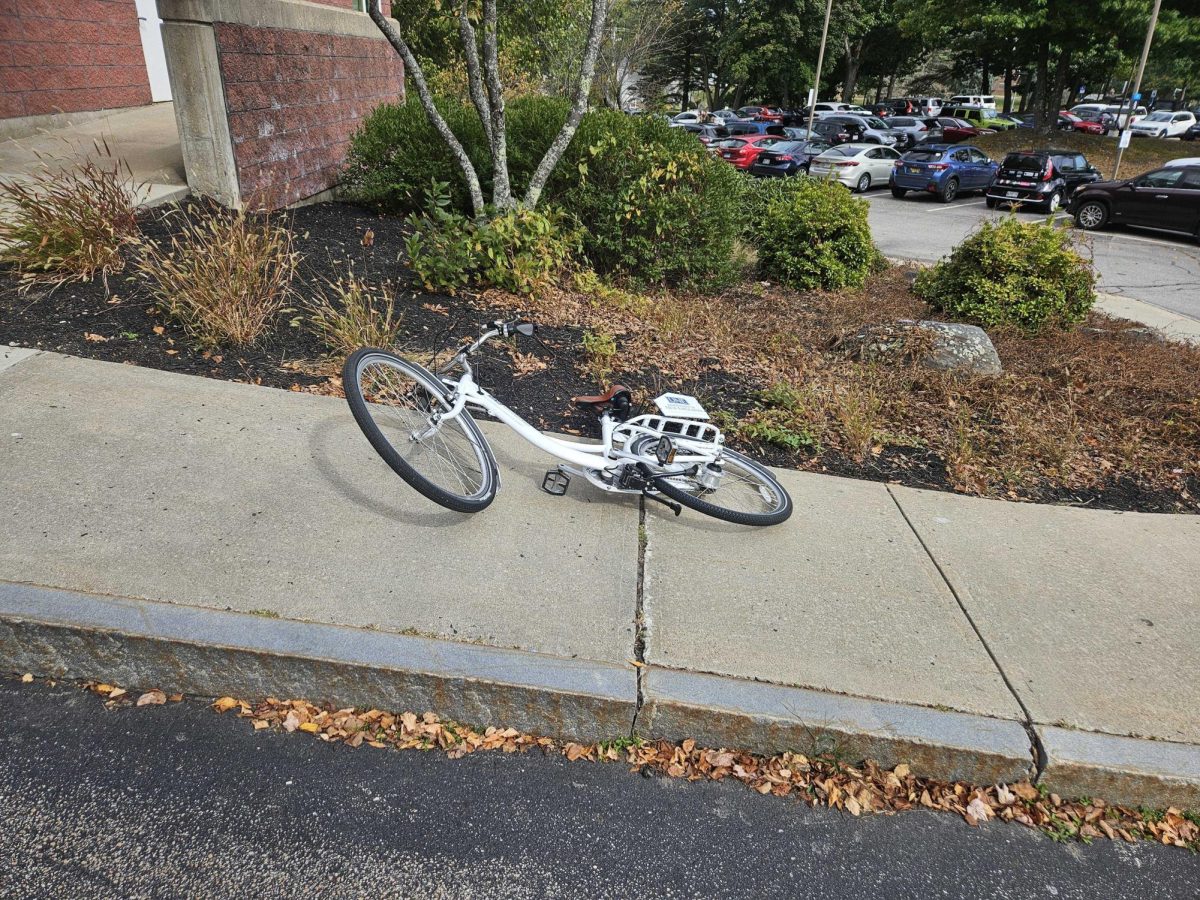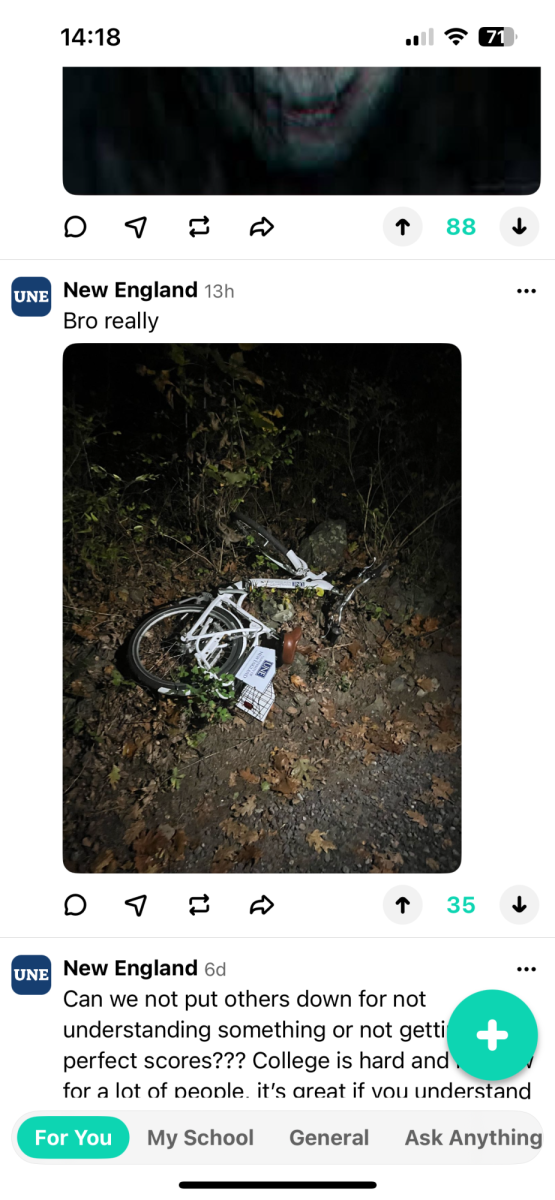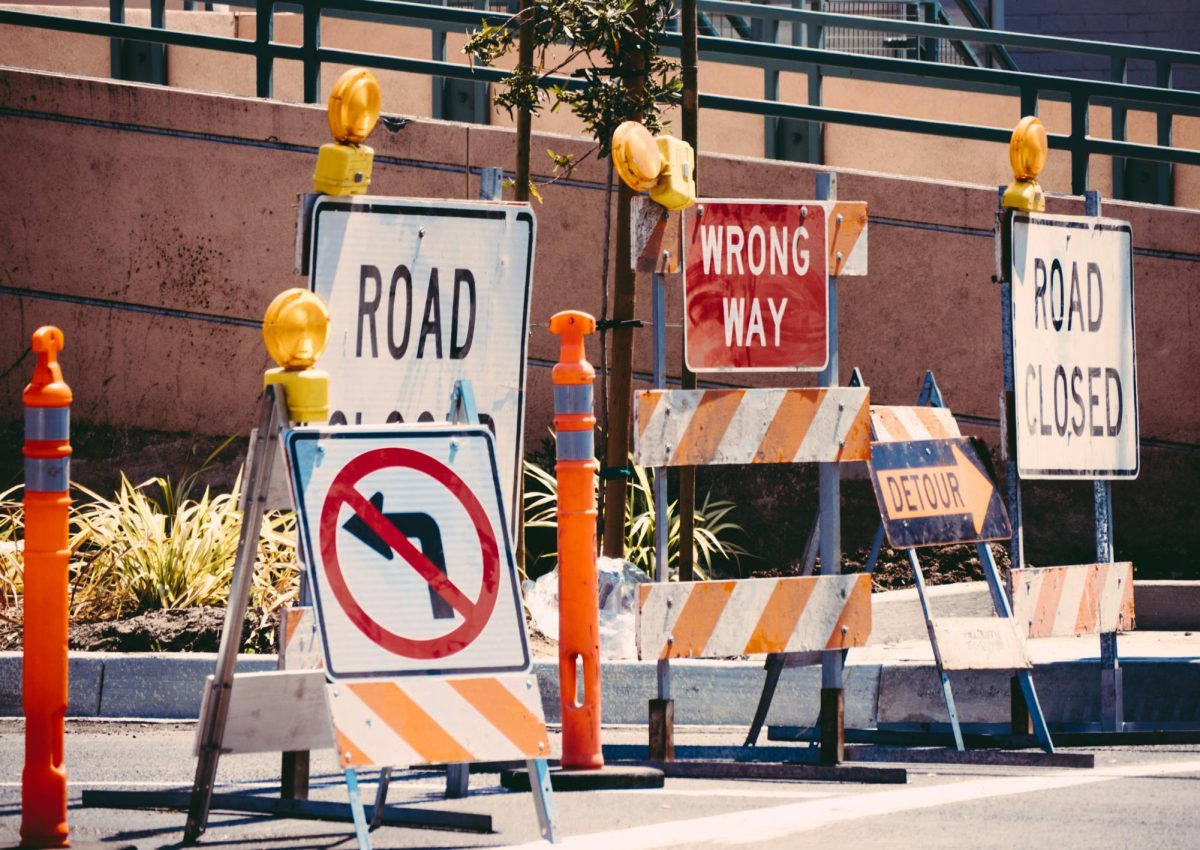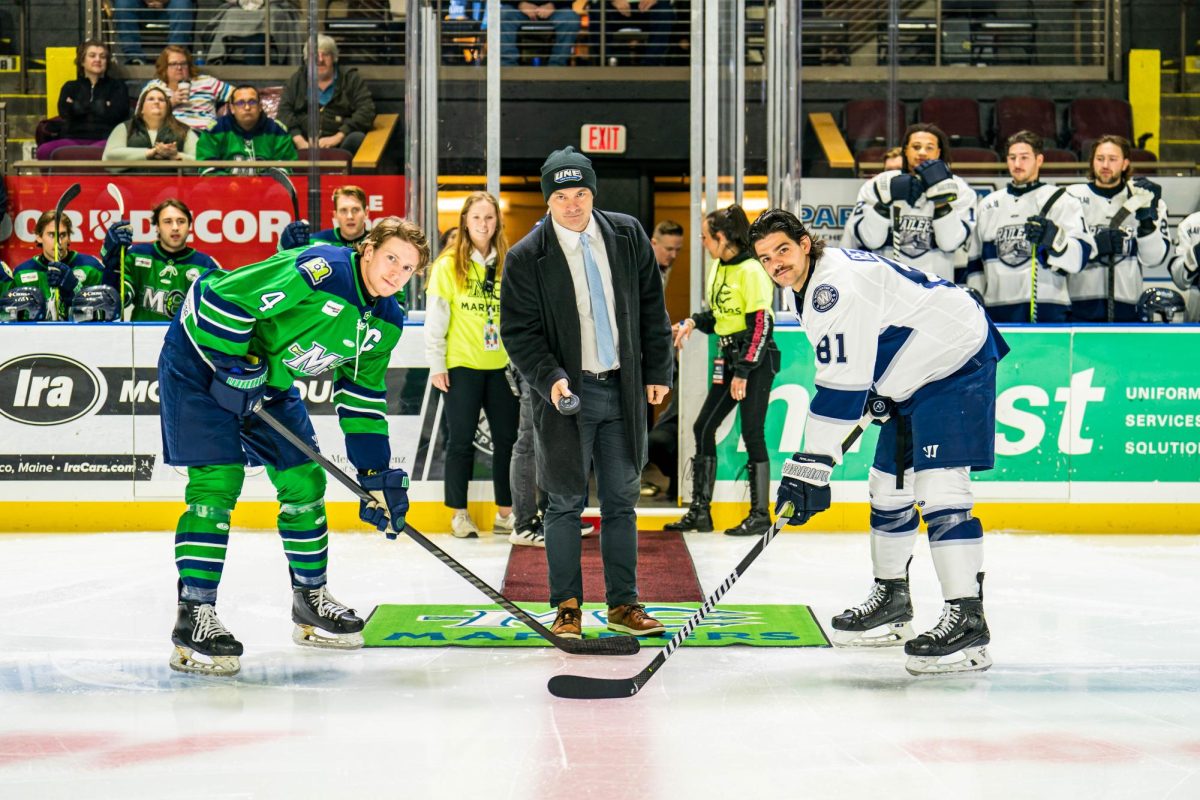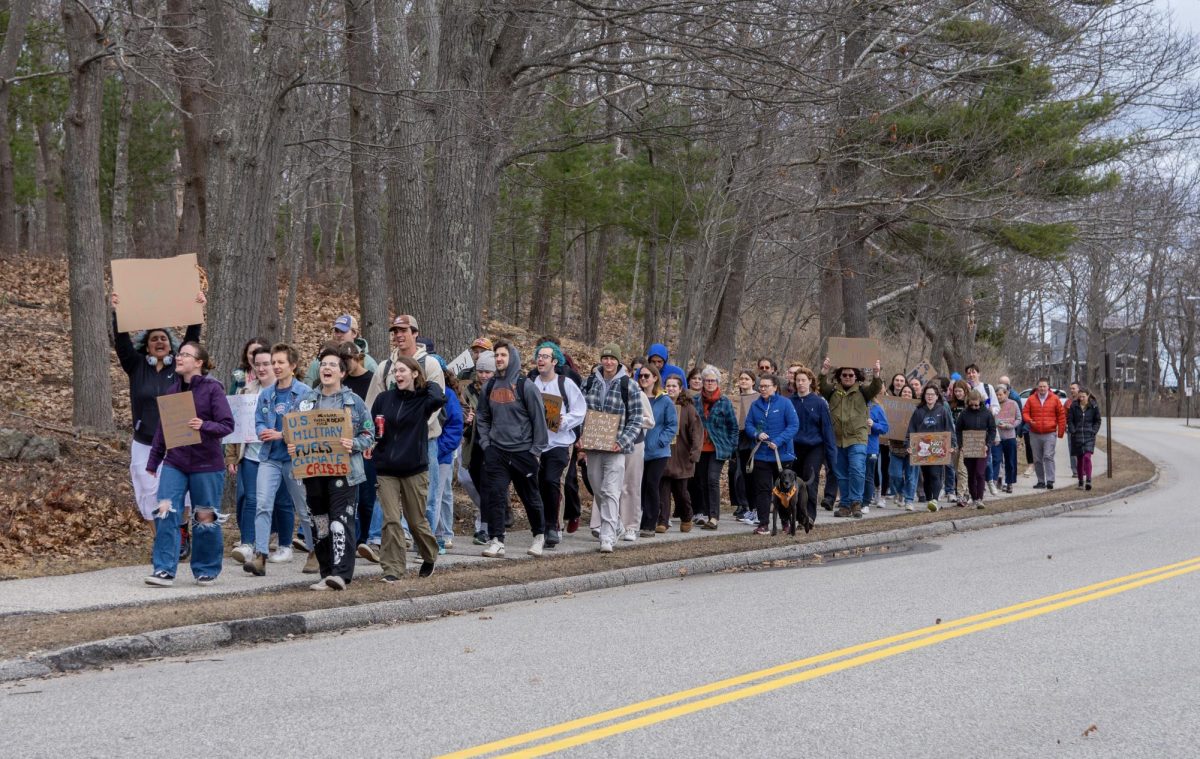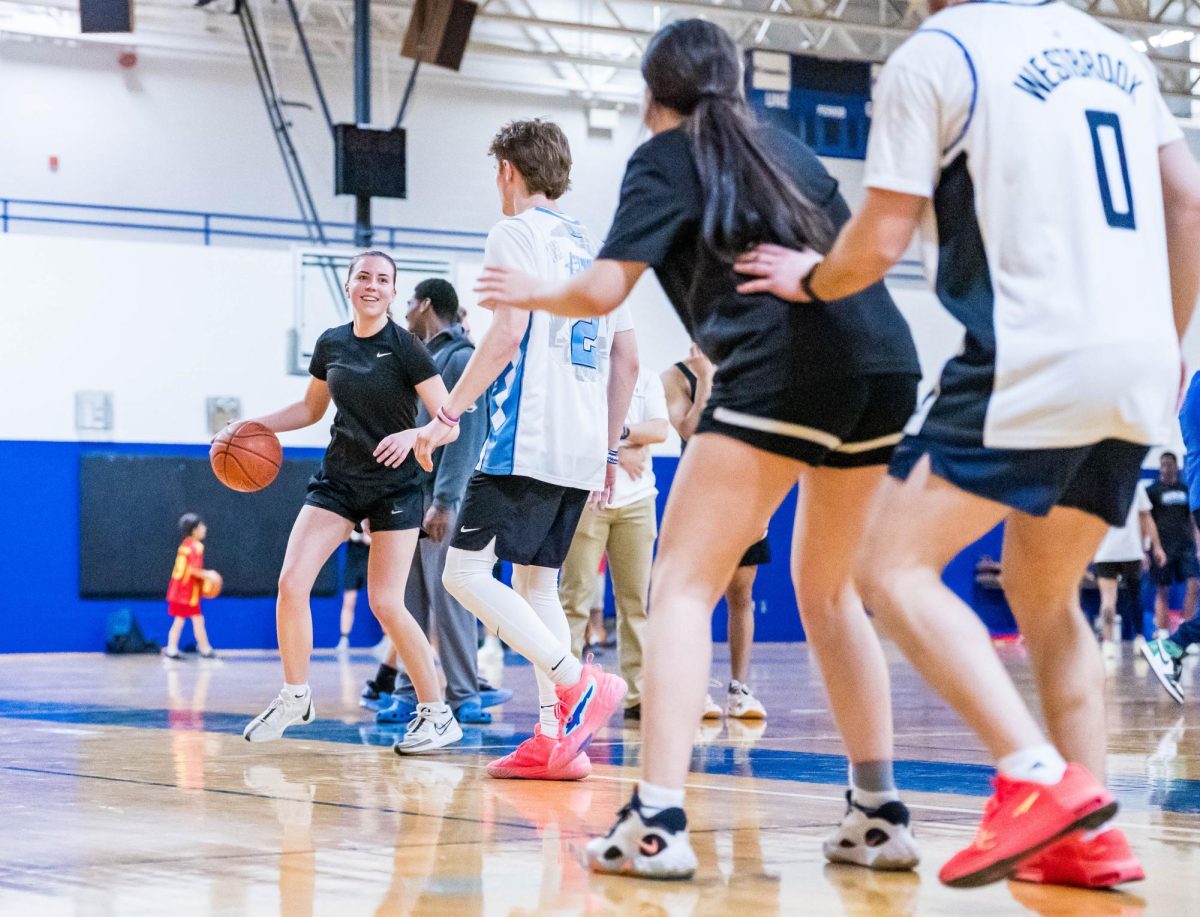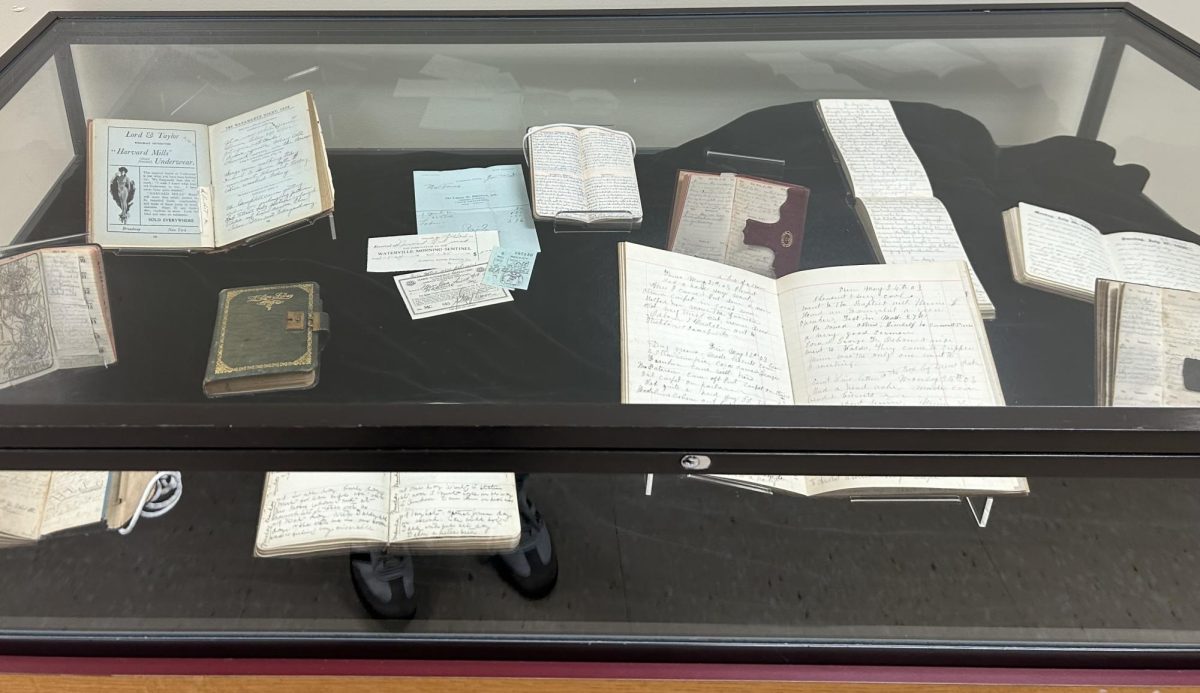Taking a walk across campus, it appears that the Nor’easter Bike Share bicycles are everywhere except their racks — inside dorm hall stairways, showers, in bushes, thrown on the ground, and on sidewalks.
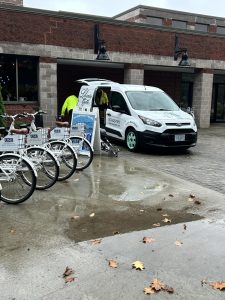
The company the bikes are purchased from, Dynamic Bikes, recommends that they be serviced monthly, but this semester, UNE has been servicing the bikes weekly. The most common repairs have been replacing chains, chain guards, and baskets. The initial purchase cost of one bike is an estimated thousand dollars. Each of the common repairs ranges from $10-$30 dollars.
Posts on YikYak, an anonymous social media app, have spurred the continued misuse of bikes on campus. Many posts have gone viral showcasing some of the oddest locations they’ve been found.
Photos of misplaced bikes collected over the past three months:
While to some students, this has become an on-campus meme, to others, the misuse of UNE bikes hinders their day-to-day transportation — for many students, the bikes are necessary to get to class on time.
“The bikes have been amazing for on-campus students getting to the field lab at the UNE 363-acre forest this semester. I have been very impressed with how timely it has made the students for class—the bikes have been a great resource—and my students have cared for the bikes respectfully,” said Noah Perlut, professor of ENV318.
ENV318, ‘Advanced Field Methods in Avian Ecology,’ takes place in the 363 at 6:30 am twice a week. Of the 12 students in the course, five say that bikes are their primary way to get to class and are needed for them to be on time.
One student has been late to class because they “could not get the bike app to work properly,” Perlut said.
In addition to general misuse, this semester, students have struggled to get the app to connect to nearby bikes, return bikes to their racks, and correctly log the hours they have bikes checked out.
“I heavily rely on the bikes for travel around campus. Most of the time the app does not load due to it being Bluetooth. It is extremely unreliable. I have also had trouble when ending the rental where the bike locks but will not let you end the session,” said one undergraduate student. The student has asked to remain anonymous out of fear of backlash for speaking negatively about the bike share.
The misuse goes “hand-in-hand” with the “ unreliability” of the bike share’s app system, said Haley Hines, a senior animal behavior major. “I think a lot of people would probably use them correctly and put them back if they knew that [the app] worked.”
Hines has used the bike share program for all four years that she has been a UNE student. She notes that this is the first year she has noticed a trend of students stealing, misplacing, and damaging bikes. Hines believes that YikYak has spurred the issue significantly, as more students use the platform to share their annoyance with the system.
“I think it’s great that we have this because not a lot of other places do. But, I don’t want to be at the tail end of the school saying, ‘people are abusing the system; we’re going to remove it,’” they said.
Along with YikYak, the limited number of available bikes and bike racks has also prompted student frustrations. This semester, the bike share app has five hundred and eighty-four active users. UNE’s bike fleet has been capped at thirty bikes. For those thirty bikes, there are three racks on campus.
“There’s not enough racks for [the bikes] to be put back. For example, there’s no rack outside Decary, so you just leave your bike there. And people take bikes all the time. Somebody took my bike outside of Decary, and if it wasn’t returned in time, there would have been a penalty, and I wouldn’t have been able to take out another bike for a few days,” Hines said.
According to Outdoor Recreation, no one has been suspended from the app as of October this year. However, bike theft and misplacement have triggered stricter monitoring of the bikes, including a newly implemented GPS tracking system.
“It is GPS tracking that we’re putting on the bikes to see if we can locate them quicker when people say that bikes are missing. Because [if] someone took it from you, we want to be able to locate it so we can go grab it and bring it back,” said Bob Eagle, senior director of campus wellness and recreation.
According to Eagle, students are allowed to use personal bike locks on their rental bikes as long as the bikes are returned within the allotted four-hour period. If a locked bike is not returned, UNE may cut the lock to retrieve the bike, and the student may face a penalty.
“If there’s an extended use where a bike is out, we’ll attempt to reach out to that person before we lock them out. The only time someone gets locked out is when they’re not communicative with us and not helping us figure out the solution,” said Eagle. “If they don’t respond to us, then we have no choice at that point. So, it’s not because we don’t want people to use the system. Once the issue is resolved, we’re able to reactivate someone.”
Over the last four years, UNE has added ten bikes to the fleet, going from twenty to thirty. There are 45 racking spots available across the three bike racks (15 racking spots are available per rack), which are located outside The Forum, The Campus Center, and Padua Hall. The University follows Dynamic Bike’s recommendation of 1.5x the amount of racks per available bike.
When asked if UNE will be adding more bikes to the fleet, Eagle said: “Probably not.” As for adding more racks, he said, “We could do something like that. We haven’t looked at it.”
Adding bike racks requires facility planning. Concrete pads have to be placed “so that [the racks] will lay appropriately,” Eagle said. “If there’s a drastic need for it and people really want it, we can always look at it and explore it. We’re not against that by any means.”
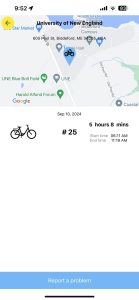
Five years ago, before UNE got the bikes through Dynamic Bikes, the bikes were sourced from a now out-of-business company, Zagster. While the Zagster program was in place, there was a bike rack available outside of Marcil, which does not have a rack with the current program. According to Eagle, that Zagster rack was “not used.”
“Another thing that we keep in mind when determining bike [rack] locations is they’ve got to have good connectivity to cellular data,” said Mira D’Amato, assistant director of outdoor recreation and education.
“We wouldn’t have any issues if other people didn’t come and take bikes from people when they checked them out. It’s simple— if you’re not the one who rented it, don’t take it. And I think we’ve seen an increase this year in students bringing the bikes into residence halls and using Yik Yak as a forum,” D’Amato said.
Both Eagle and D’Amato remind users to turn off Wifi when using the app. For it to work properly, the user must be on cellular data and connected to Bluetooth.
If you are having trouble with the bike share system, need to report damage, have a bike taken from you, or have any additional questions, reach out to Outdoor Recreation at [email protected].
Students are urged to follow the bike-share rules, which are as follows:
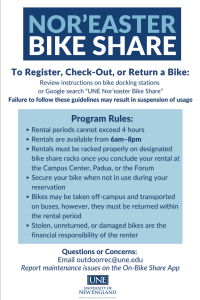
- Rental period cannot exceed four hours
- Rentals are available from 6am-8pm
- Rentals must be racked properly on designated bike share racks once you conclude your rental at the Campus Center, Padua, or the Forum
- Secure your bike when not in use during your reservation
- Bikes may be taken off-campus and transported on buses, however, they must be returned within the rental period
- Stolen, unreturned, or damaged bikes are the financial responsibility of the renter



